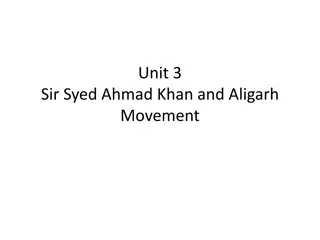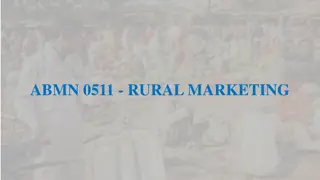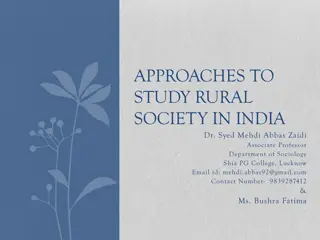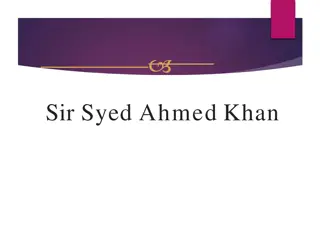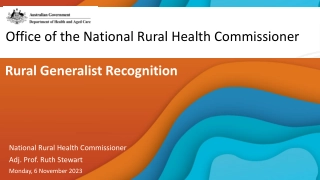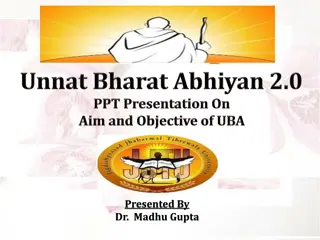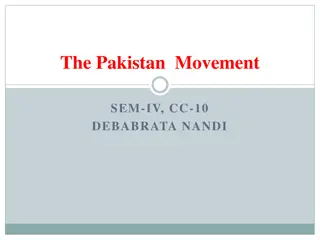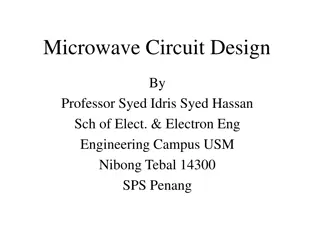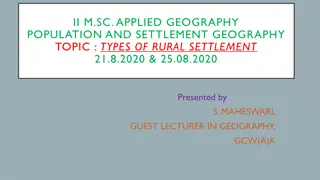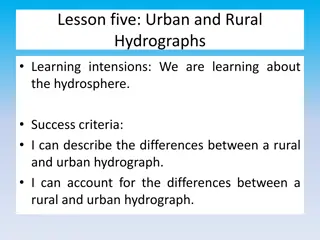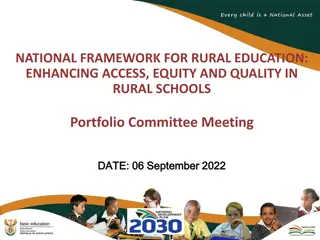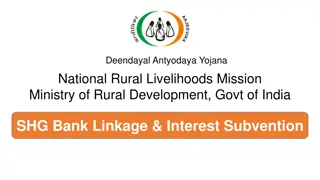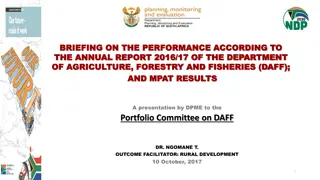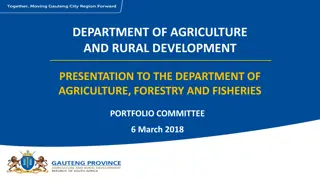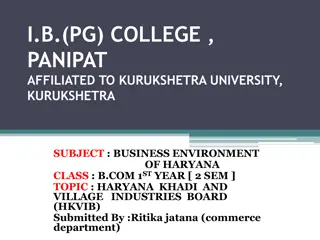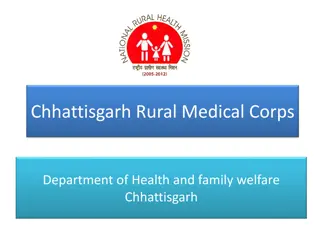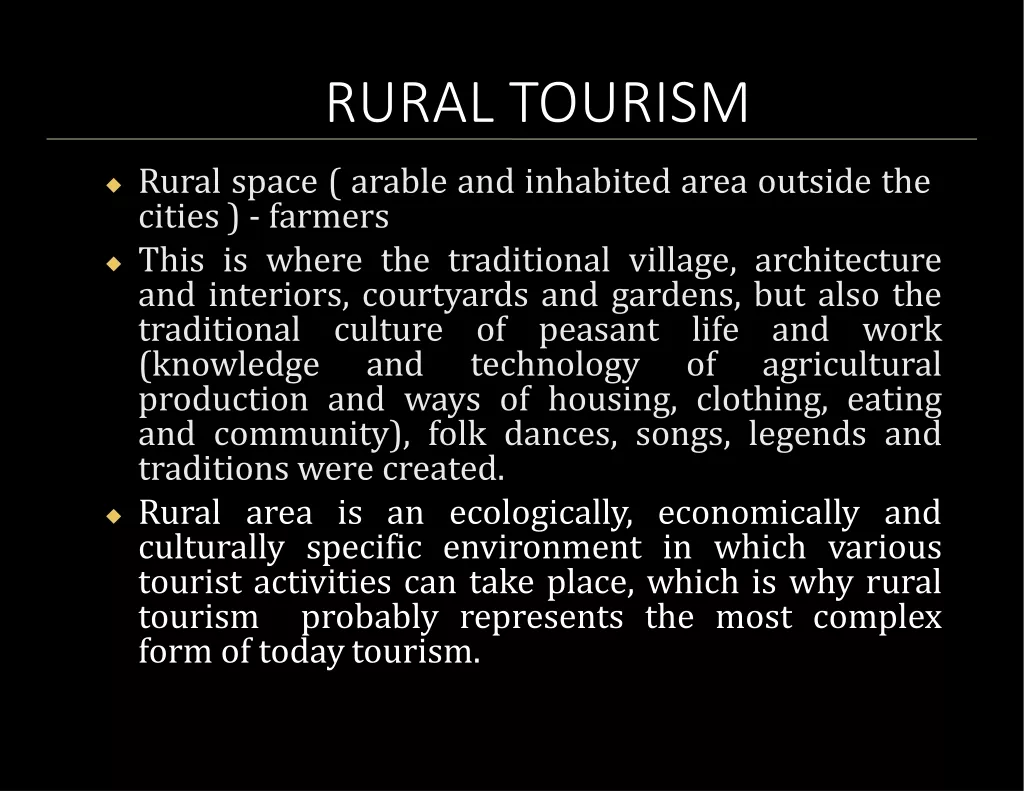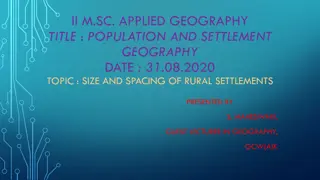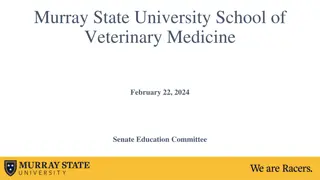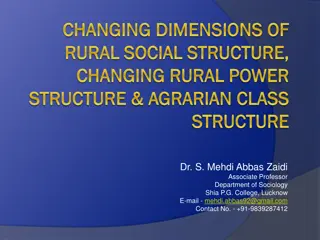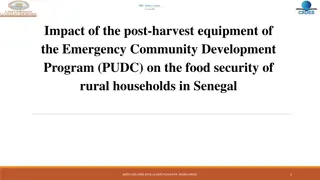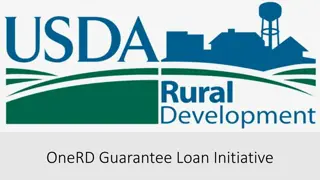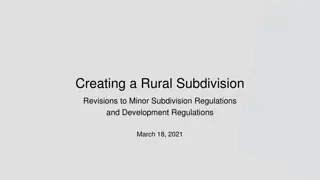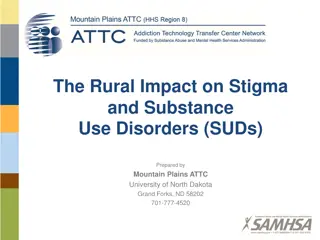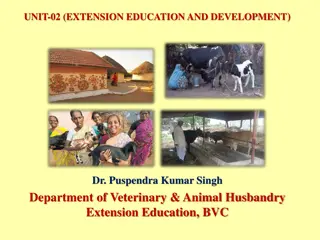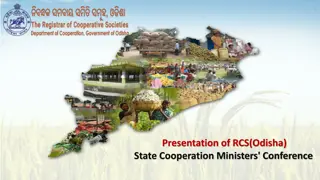Understanding Features of Rural Society by Dr. Syed Mehdi Abbas Zaidi
Rural society, as explained by Dr. Syed Mehdi Abbas Zaidi, is characterized by agriculture as the primary occupation, dependence on nature, extended kinship groups, traditional practices, religious beliefs, joint family system, kinship dynamics, Jajmani system, homogenous culture, lack of specialized labor, simple living, and genuine values. This insightful analysis sheds light on the essence and structure of rural communities.
Download Presentation

Please find below an Image/Link to download the presentation.
The content on the website is provided AS IS for your information and personal use only. It may not be sold, licensed, or shared on other websites without obtaining consent from the author. Download presentation by click this link. If you encounter any issues during the download, it is possible that the publisher has removed the file from their server.
E N D
Presentation Transcript
Features of Rural Society Dr. Syed Mehdi Abbas Zaidi Associate Professor Department of Sociology Shia PG College, Lucknow Email id: mehdi.abbas92@gmail.com Contact Number- 9839287412
Rural Society A society whose members primary occupation is agriculture. It resides in the villages. They directly depend on nature. Their customs and traditions are all dependent on nature. They are made up of extended kinship groups.
Features of Rural Society Agrarian Society In these societies agriculture is the primary occupation. Major part of the population depends on agriculture. Traditional Society They follow little tradition, which is unwritten traditions. Only higher class or caste follows the great traditions.
Continuum Religious Society Religious practices have great importance in them and they believe highly in religion. Much superstition is also found in these people. Joint Family System Rural society chiefly follows the joint family system everyone is for one, and one is for everyone is their ideal. Disputes and social control are primarily done by the family.
Continuum Kinship System It is made up of extended kinship groups. Kin plays an important role in their lives. Jajmani System It follows caste based Jajmani system. It is a profession based system which divides profession among different caste groups. Basically, it is a service method.
Continuum Homogenous Culture In a rural area same or homogenous culture is followed by the whole society. It mainly depends on the nature around them. Lack of Specialised Labour Everyone knows about doing big and small things related to agriculture but they are not experts in any work They have empirical knowledge but don t have much scientific knowledge.
Continuum Simple and Genuine Living They are very simple people, who don t have any interest or follow processes such as trickery, fraud, taking advantage of anyone. They are very honest and wishes good of all people.
References Mukerjee, R. N., Indian Rural Sociology Lawaniya, M. M. and Jain, S. K., Rural Sociology



